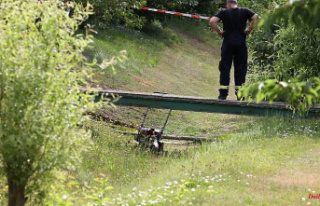Nuremberg (dpa/lby) - Collective bargaining began on Thursday in Nuremberg for around 855,000 employees in the Bavarian metal and electrical industry. 4,000 metal workers from Bavaria came to a rally in Nuremberg to accompany the start of negotiations between IG Metall and the metal employers.
Bavaria's IG Metall district chief Johann Horn reiterated the demand for eight percent more wages and salaries before the talks began. Employers can pass on their increased costs through higher prices - workers are unable to do this and need higher incomes to continue covering their living expenses.
"Now it's time for a strong, permanent tariff increase," said Horn. The past financial statements had been shaped by the Corona crisis, and the employees had shown a sense of responsibility during this phase. He had previously not ruled out a labor dispute to enforce union demands on Bayerischer Rundfunk.
The negotiator for the employers, Angelique Renkhoff-Mücke, described the demand as unfulfillable. "Eight percent is not acceptable, is not realistic," she said before the talks began. It is important to find a balance and also to support companies that have been pushed to the edge of profitability during the crisis. The starting position was particularly difficult this time because both sides had understandable concerns.
Collective bargaining in the metal industry has already started in other federal states, for example in Lower Saxony/Saxony-Anhalt, Saxony, Thuringia and Baden-Württemberg. North Rhine-Westphalia should follow on Friday. The social partners have not yet defined a pilot district.
The concerted action by Federal Chancellor Olaf Scholz could also influence the talks. Trade unions, employers and the federal government want to jointly explore options for dealing with the consequences of the energy crisis.












